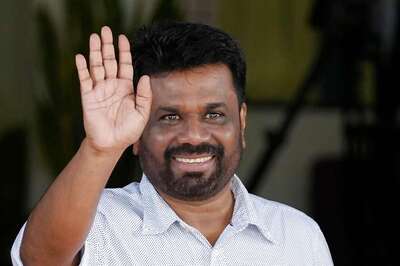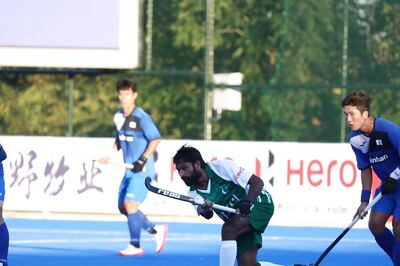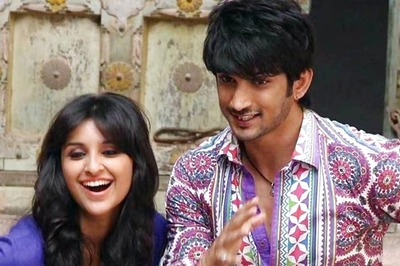
views
There’s no other way to put it. The Rashtriya Swayamsevak Sangh (RSS) is going through its biggest crisis in Kerala since its inception eight decades ago.
At the heart of this crisis is the Supreme Court judgment allowing women of all ages entry into the Sabarimala Temple. The Sangh is in firefighting mode after having issued a press release in favour of the verdict.
The Kerala unit of the RSS is known to have been at the forefront of movements to abolish practices such as goat sacrifice during Athiratram and the induction of non-Brahmin priests in temples. It was K Bhaskar Rao, the legendary Pranth Pracharak of Kerala, who broke precedence and issued a press statement against the cruel ritual wherein the goat was killed and a gland from its body was consigned to the holy fire.
Pracharak P Madhavan persuaded 16 of the 19 Vedic families in Kerala to allow non-Brahmin Hindus to learn Vedic lessons and become priests and tantris in various temples of Kerala. He, along with Paravoor Sreedharan Tantri, a Vedic scholar who belonged to the OBC community, started the Tantra Vidya Peeth, a residential institution to teach Vedic knowledge to candidates irrespective of caste.
In all above mentioned cases, resistance has mainly come from the higher castes in Hindu religion, but the majority agreed with the Sangh. In Sabarimala, however, the RSS finds itself directly in conflict with majority of the Hindu society, irrespective of caste and creed.
Even when the case was in the Supreme Court, RSS Sarkaryavah (general secretary) Suresh ‘Bhayyaji’ Joshi made the stand clear. He said that entry into any place of worship has to be irrespective of caste, sex and creed. He added that the “scientific aspect” of the ban on women’s entry at the temple must be taken into account, but made it clear that complete ban was improper. In the press release after the verdict, the Sangh said all stakeholders must be taken into account before implementing the judgment.
There is no doubt that majority of the Hindu community in Kerala is against the Supreme Court decision. It was also quite natural for the community, in general, to expect that the RSS or any of its affiliated organisations would have led the protest against the ruling. But the press statement created confusion not only among the public, but also among RSS cadre.
Ranga Hari, one of the senior-most ideologues in the RSS, penned a series of scholarly articles in the weekly Kesari, the mouthpiece of the Sangh in Kerala, explaining why the entry of young women into the shrine is a legitimate demand. Ranga Hari, who has served as the Akhil Bharatiya Boudhik Pramukh (intellectual wing chief) of the Sangh, categorically laid down why the ban should be abolished. It led to furore among the state leadership and many pointed out the “impropriety” of the articles at a critical time.
Popularly known as Hari ‘Ettan’ (brother) among cadre, Ranga Hari questioned the most crucial part of the Sabarimala debate — the 41 days of vrath (penance) and the logic behind it. He argued that centuries ago, devotees only observed 21 days of penance. He quoted from Kalidas, Mahabharatha and other texts to prove his point. He pointed out that whichever Acharya Sabha decided to ban young women from the temple would not have had a woman representative. He further argued that while deciding customs and rituals, women leaders of the Hindu religion should be included.
State leaders of the Sangh differ from Ranga Hari on various aspects. They argue that sudden changes cannot be implemented and that beliefs were deep-rooted and passed over for generations. Unlike Ranga Hari, however, they failed to back their argument with academic justifications.
The issue may be one of the biggest turning points in Kerala’s politics and religious affairs. The BJP shied away from making any strong statement despite the RSS press release. While K Sudhakaran, one of the three working presidents of the Congress’ Kerala unit, lashed out against the verdict, Leader of Opposition Ramesh Chennithala stood by the devotees and former CM Oommen Chandy, along with some leaders, issued lukewarm statements.
The biggest gainer in the entire saga is the Antharashtreeya Hindu Parishad (AHP), a dissident outfit floated by Pravin Togadia, the former working president of the Viswa Hindu Parishad (VHP). The AHP capitalised on the bruised sentiment of the Hindu community in the state. They organised rallies, protest marches and public meetings to seize the moment. Sensing a threat, Sangh Parivar’s Akhil Bharatha Ayyappa Seva Samajam, Hindu Aikya Vedi, Yuva Morcha and Mahila Morcha joined the protest.
It was Chief Minister Pinarayi Vijayan’s decision to not file a review petition that gave the RSS a way out of the tight spot. Vijayan vehemently supported the entry of young women into the temple, dismissing statements made by both the Devaswom minister and President of the Travancore Devaswom Board (the statutory body to administer temples in the erstwhile Travancore state). Devaswom board president A Padmakumar, a CPI(M) nominee, had said the board would approach the SC with a review petition. But after public criticism of the ban by the CM, he changed his stand.
The next day, Suresh ‘Bhaiyyaji’ Joshi issued a statement from Nagpur saying the sentiments of thousands of devotees, including women, should be respected.
“Unfortunately, the Kerala government has taken steps to implement the judgment with immediate effect without taking the sentiments of devotees into consideration. There is an obvious reaction to the same by the devotees, especially women, who are protesting against the forceful breaking of the tradition,” he said.
Following this, BJP state president said the party will stand with the devotees against the Left government’s stand on the issue. But the crisis did not end there. R Sanjayan, state committee member of the RSS, wrote an article in Janmabhumi newspaper, the mouthpiece of the Sangh in Kerala, favouring the Supreme Court verdict, infusing more confusion into the discourse. The next day, the paper had to carry an explanation.
To manage the crisis, the state leadership has called for a Samanvaya Baithak on Monday, where representatives of all Sangh Parivar organisations will be present. This meeting will be keenly watched by members of the Hindu community irrespective of political affiliations.
(The author is a freelance writer based in Kochi. Views are personal.)




















Comments
0 comment